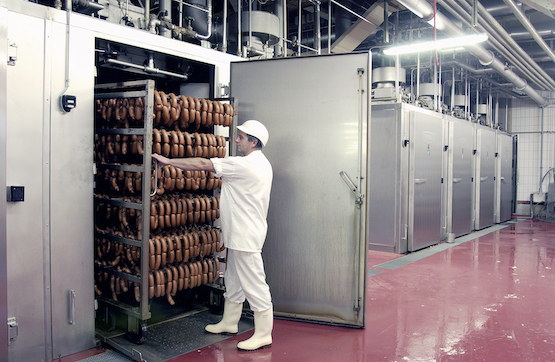The increase in the reduced VAT on sausage products

The Federal Association of German Sausage and Ham Producers (BVWS) represents the interests of manufacturers of high-quality sausage and ham specialties. Increasing the reduced VAT rate on animal products would have a serious economic impact on our industry. Due to falling sales and profits, companies could be forced to cut jobs, limit their production or relocate to neighboring countries. This would not only have a negative impact on meat production in Germany, but also on the entire value chain, including agriculture and retail. In view of these far-reaching economic and structural consequences, the 12% increase in the price of animal products is completely out of place.
Meat and meat products are important components of a healthy and balanced diet. As a result of government increases in the price of meat and meat products, low-income population groups would be disproportionately burdened and would only be able to afford high-quality animal foods to a very limited extent.
In addition, increasing the VAT on animal products would make particularly high-quality products in the upper price segment, such as goods from higher farming levels and organic goods, even more expensive and thus further reduce the very limited consumer demand that already exists today. The proposed compensation for this through a higher animal welfare premium would be at the expense of pig farmers in fresh air stables and outdoor areas/pasture, because the amount of one billion euros made available for a period of four years for the conversion of animal husbandry can only be distributed once.
A VAT increase on meat and meat products in Germany would also lead to a significant competitive disadvantage compared to foreign companies. There is no comparable tax burden for animal products in other countries in the European Union. This would lead to German companies being clearly disadvantaged in international competition, losing market share and domestic production being increasingly replaced by imports.
In addition, the VAT is not earmarked. It is completely unclear whether and to what extent the tax increase would actually benefit the improvement of animal husbandry. Long-term commitments to agriculture have not yet been made. The non-transparent use of tax resources is likely to significantly limit acceptance in the value chain and among the population.
The increase in VAT is not aimed at restructuring agriculture, but rather at reducing animal husbandry. According to the Tagesspiegel report of April 11.04.2024, XNUMX, the Federal Minister of Agriculture Cem Özdemir welcomed the fact that the Commission is suggesting that the VAT on meat be gradually increased and at the same time set to zero for fruit and vegetables, because this “would also have a health-promoting steering effect and thus also support arable farmers and horticulture”.
Due to the ongoing decline in agricultural meat production, which is clearly desired by some politicians, as well as the increasing regulatory European and national requirements with regard to sustainability and environmental protection, sausage and ham producers are facing a structural change that requires consistent adaptation to changing consumer preferences, Sustainability goals and technological developments are required. The national ban on temporary work in the meat industry has significantly exacerbated the labor shortage and with the federal government's political considerations on husbandry and origin labeling, the next serious burdens on the economy are already in sight, the benefits of which for consumers appear questionable.
BVWS President Sarah Dhem: “Our industry faces these challenges through innovations and investments, often at the expense of profitability. The planned increase in VAT on animal products will counteract the transformations that our companies have already initiated and reduce them to absurdity. We are convinced that sustainable change can be achieved better in other ways.”
Unfortunately, the political projects are, if at all, only discussed very inadequately with those economically affected and in their practical implementation they regularly have significant weaknesses, which ultimately come at the expense of taxpayers.
Conclusion
The Federal Association of Sausage & Ham Producers firmly rejects the increase in VAT on animal products. We are convinced that such a tax would neither make economic sense nor be socially fair.
About BVWS eV
The Federal Association of German Sausage & Ham Producers (BVWS) is an association made up of predominantly medium-sized family businesses that represents the interests of the industry. The approximately 120 full members of the BVWS employ around 65.000 people and achieve an average annual turnover of around 20 billion euros. This makes sausage and ham producers one of the leading sectors of the German food industry.
